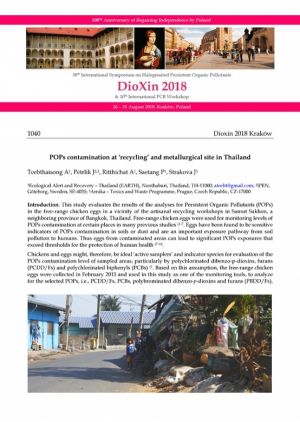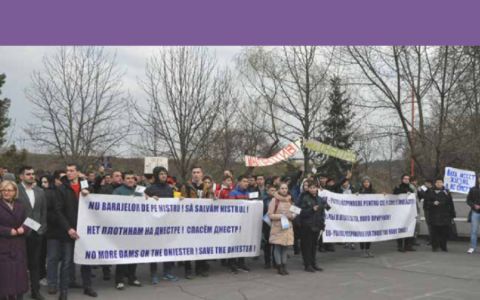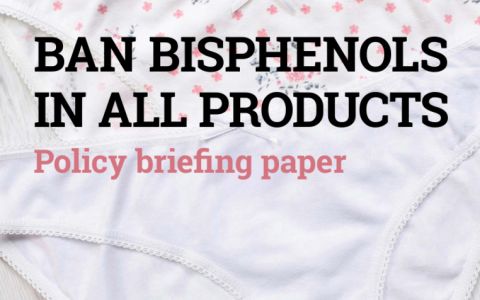This is the abstract to the study presentated at the Dioxin 2018 Symposium held in Krakow, Poland from 26th to 31st August 2018.
[1] Ecological Alert and Recovery - Thailand (EARTH), Nonthaburi, Thailand, TH-11000;
[2] IPEN, Gothenburg, Sweden, SE-4035
[3] Arnika - Toxics and Waste Program, Prague, Czech Republic
Introduction
"This study evaluates the results of analyses for persistent organic pollutants (POPs) in free-range chicken eggs in the vicinity of the artisanal recycling workshops in Samut Sakhon, and the province of Bangkok, Thailand. Free-range chicken eggs were used for monitoring levels of POP contamination at certain sites in many previous studies1-7 . Eggs have been found to be sensitive indicators of POP contamination in soils or dust and are an important exposure route from soil pollution to humans. Eggs lead to POP exposures that exceed the thresholds for the protection of human health7-10 .
Chickens and eggs might therefore be the ideal 'active samplers' and indicator species for the evaluation of POP contamination levels of sampled areas, mainly by polychlorinated dibenzo-p-dioxins and furans (PCDD/Fs) and polychlorinated biphenyls (PCBs) 7 . Based on this assumption, the free-range chicken eggs were collected in February 2015 and used in this study as one of the monitoring tools to analyze selected POPs, including PCDD/Fs, PCBs, polybrominated dibenzo-p-dioxins and furans (PBDD/Fs), polycyclic aromatic hydrocarbons (PAHs), and brominated flame retardants (BFRs). This study discovers serious contamination within the food chain by various POPs in Samut Sakhon and the level of these chemicals measured in eggs is the second highest ever measured in chicken eggs globally7 . We also looked at levels of POPs found in other environmental compartments sampled in Samut Sakhon, in addition to the free-range of chicken eggs.
The data and analysis of free-range chicken eggs was also reviewed in a broader context of industrial hot spots in Thailand,11 as well as the POPs found in samples of soils, sediments and biota from the same sites12 within the joint EARTH and Arnika's project 'Increasing Transparency in Industrial Pollution Management through Citizen Science.'
Further information about the project can be found at https://www.arnika.org/en/countries/thailand or www.earththailand.org .







